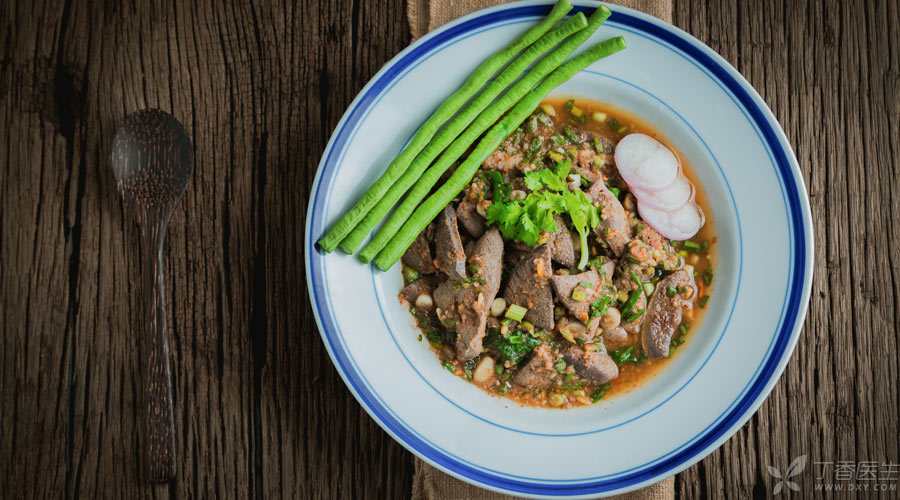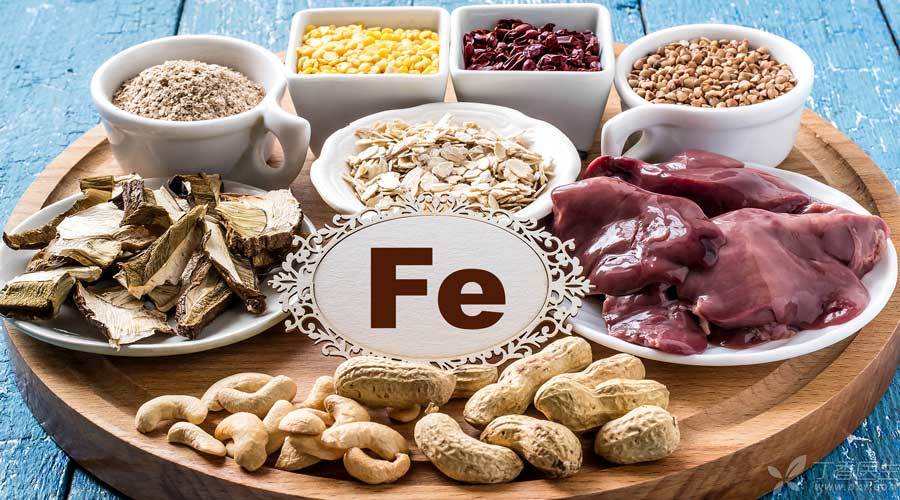
-I often feel tired recently, and I don’t know why.
-Oh, it must be anemia.
-What should I do?
-Pig liver enriches blood, insist on eating every meal, there will be no problem!
When it comes to anemia, everyone will think of the liver. The liver is hematopoietic, and its iron content is high. Naturally, it has become a holy product for enriching the blood. But in fact, the truth is not the case.
There are many dialogue slots above, which need to be corrected:
1. Fatigue is a symptom of anemia, but anemia cannot be diagnosed.
2. Even if it is anemia, not everyone needs to supplement iron, and indiscriminate supplement of iron will have the opposite effect.
3. Even if iron supplement is really needed, not everyone is suitable to eat pork liver for iron supplement.
Anemia, according to different causes, can be subdivided into more than 400. The cause of anemia is not generally complicated. It must be diagnosed through regular medical treatment. After being diagnosed as a certain anemia, the doctor’s advice should be followed to take medicine and the blood transfusion.
If it is determined that it is a nutrition-related anemia type, then consider strengthening diet and cooperating with treatment at the same time.
Need to Supplement Iron: Iron Deficiency Anemia
Red blood cells are important [couriers] in red blood cells responsible for transporting oxygen to cells everywhere in the body. Because there is not enough iron, the body cannot produce enough red blood cells, resulting in anemia.
Infants and vegetarians are prone to iron deficiency due to dietary restrictions. Pregnant and lactation women, iron demand increased greatly, easy to iron deficiency; In addition, women’s blood loss during their physiological period, long-term physical exercise, and digestive diseases such as gastric ulcer may all cause iron deficiency.
Iron deficiency anemia is the main anemia group. Therefore, this kind of anemia population in addition to treatment, it is very necessary to strengthen iron intake in diet.
- Vegetable foods, The iron content is relatively high, such as: Spinach and amaranth in dark green leafy vegetables, soybeans and red beans in beans, as well as laver, black sesame, lotus seeds, black rice, etc. Animal foods, various livers, pork, beef, animal blood, etc., are foods with high iron content and iron absorption and utilization, and heme content is very high, the significance in supplementing iron and blood is far higher than plant iron, and must not be ignored.
It is really helpful to add iron supplement experts such as pork liver to your diet. But there are several points to note:
1. Vitamin A
The vitamin A content in the liver is also extremely high, so it would be terrible if you really ate it every meal.
In particular, it is not recommended for pregnant women to eat in large quantities. Because large doses of vitamin A are easy to lead to congenital defects in the fetus and liver poisoning in pregnant women.
2. Cholesterol
The content of cholesterol in the liver is also considerable. Although cholesterol is no longer restricted in the new dietary guidelines, the total dietary fat intake should still be controlled.
3. Residues of heavy metals and veterinary drugs
After investigation, some liver foods such as pork liver sold on the market found that the residues of heavy metals and veterinary drugs were relatively high, and eating too much [every meal] was not good for health.
Suggestions for eating:
Patients with iron deficiency anemia other than pregnant women can consider eating liver food once a week, and an amount of about 100g is enough. Try to mix liver food with dark vegetables and bean products.

Iron Supplement Harmful: Severe Thalassemia
The occurrence of thalassemia has nothing to do with iron in the body. It is a hereditary blood disease, which shows that the life span of red blood cells is shorter than that of normal people. It is usually recommended to pass premarital health examination to prevent both husband and wife from being carriers of thalassemia gene and giving birth to children with severe thalassemia.
Patients with moderate or severe thalassemia
Because they often need repeated blood transfusion treatment, regular blood transfusion is easy to lead to iron excess (overload), which will cause certain damage to heart, lung, liver and other organs, so iron chelating agent is needed for treatment. However, many hospitals do not necessarily have iron chelating agents, thus causing a big problem.
Therefore, thalassemia patients with repeated blood transfusion should pay attention to control the iron in their diet not to be excessive, generally maintain a normal diet, or appropriately limit foods rich in iron.
Mild thalassemia patients
In life, patients with severe thalassemia are few, and the most are mild patients. They usually have no obvious symptoms and do not need blood transfusion treatment. Therefore, patients with mild thalassemia need a normal and reasonable diet to ensure the normal intake of iron without limiting iron.
One thing to note is that thalassemia and iron deficiency anemia may occur simultaneously.
If thalassemia patients who have not received blood transfusion have removed iron-rich foods from their diet, they are likely to become a high-risk group for iron deficiency anemia. Once iron deficiency anemia occurs, they simply do not know how to supplement iron, and even many doctors do not know how to supplement it better. The problem will become very difficult.
Not iron-related: vitamin deficiency anemia
1. Nutritional megaloblastic anemia: Lack of vitamin B12 and/or folic acid, which is more common in pregnant women and infants.
2. Pernicious anemia: vitamin B12 malabsorption. Inducement is mainly intestinal diseases, intestinal parasite infection, surgical resection of part of the stomach or intestinal tract, AIDS, etc.
Patients with this kind of anemia need to supplement vitamin B12 and folic acid.
To supplement vitamin B12, you can eat more eggs, various dairy products (milk, yogurt, cheese), meat and aquatic products.
To supplement folic acid, you can eat more dark green leafy vegetables, fruits and nuts.
Not related to nutrition: hemolytic anemia caused by lead
This type of anemia is usually related to industrial occupations that are frequently exposed to lead, or the storage of food and beverages in lead containers in daily life, or the use of drugs with excessive lead content. Lead is especially toxic to bone marrow, causing a large decrease in the number of red blood cells.
In addition, children in some areas will eat lead-containing articles by mistake, such as contaminated soil, rotten lead-containing paint flakes and lead-containing paint fragments.
